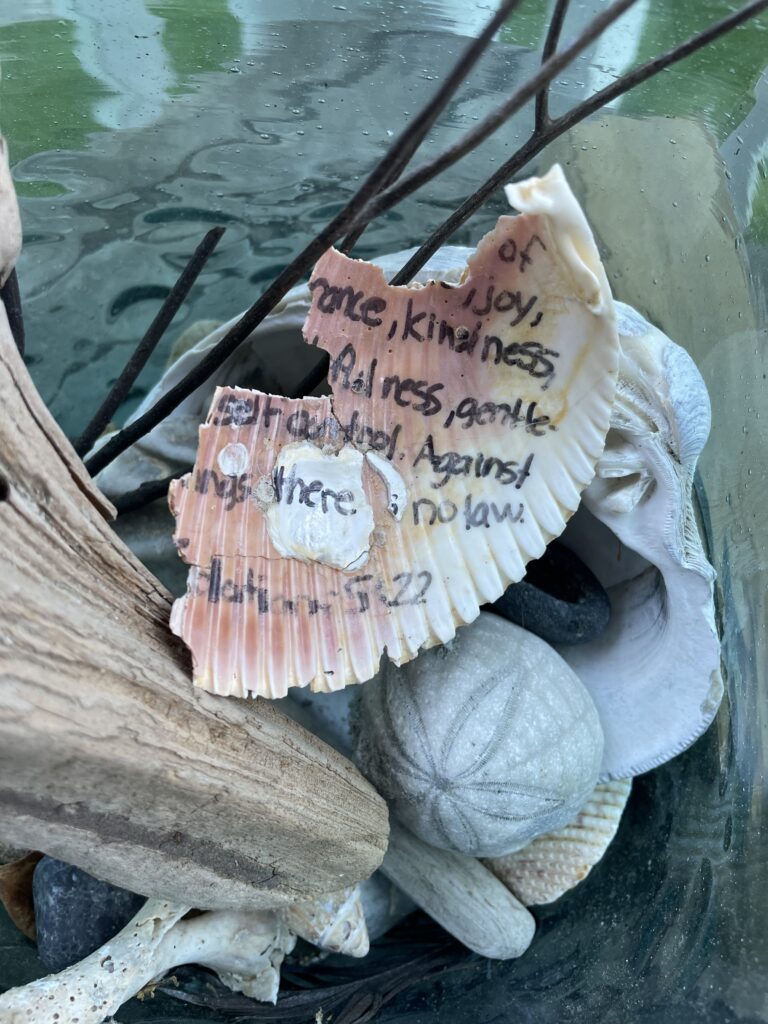By Ashlie Miller
Learning to swim has become a rite of passage in our home. Each child has desired swim lessons around the age of 5 or so. My youngest has not yet wanted that, though. He would rather figure things out on his own or with me, Mom. We get along swimmingly as we hold our breath while wearing our goggles to sit together on the bottom of the pool, compete to grab diving sticks (our favorites look like silly monsters), or jump in simultaneously, delighting in the myriad of bubbles engulfing us.
There is one thing, however, into which I cannot completely coax him—resting on his back, afloat on the water. It is one of my favorite things—letting go, relaxing, and letting buoyancy do what it does best. I trust the water to hold me, almost thrusting me upwards to the surface of the water.
On a recent mommy-son swim, it occurred to me that lying on my back in the water was a great picture of faith. I never fully appreciated the object lesson of trusting a chair to hold me when I sit down to be a great picture of faith. Many use the illustration. But I can see that chair. I can probably even see if it looks a bit faulty – if screws or nails are missing or if joints seem to be coming apart. But floating on something seemingly invisible is different.
Faith is the substance of things hoped for, the evidence of things not seen (Hebrews 11:1). In the pool, although I can see the movement of the water and reflection of the sun underneath, I cannot really see the forces that would hold me afloat. I hope I can float and the water will keep me in that position. I see no evidence that it will when simply glancing at the water.
In the mind and eye of a child, it almost looks like levitating on thin air. My son has heard the story of his unsuccessful attempt to fly from the top of the flight of stairs when he was less than two years old. “Hey brother, watch me fly!” I heard him yell as I was in the kitchen that day. Upon hearing a THUD, I ran around the corner to see that he had landed hard near the bottom. What a lesson! Why would he assume that water would fare him much better?
But he can see that Mommy puts her faith in the water. She is calm and serene and eager to enjoy an all-too-brief moment floating, looking up at the Carolina-blue sky above. Will he also see my faith in things or Someone more important?
I hope he will soon learn lessons of faith—not just in the water, not just in Mommy’s faith, but in real, meaningful, abiding faith for himself.
Ashlie Miller spends summer days playing at the pool, going on walks, reading books, and waiting for summer storms on the porch. You may email her at mrs.ashliemiller@gmail.com, and she will answer you while on the porch or by the pool.


